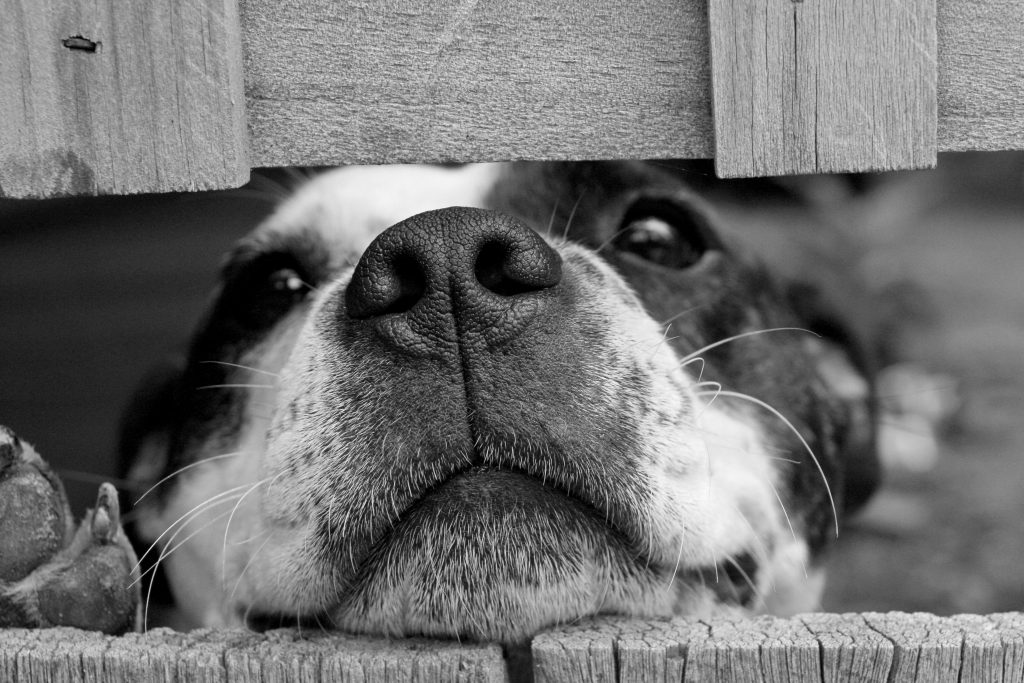
Posts by: Mychelle Blake, MSW, CDBC, Lifestyle Contributor and Pet Behavior ExpertDog Checkups & Preventive Care
It’s a brand new year and time to think about resolutions. You may have already considered things like losing weight, quitting a bad habit, or learning a new skill, but how about resolving to make a stronger bond with your dog? Here are 12 ways to do just that in 2017. I’ve offered one tip to focus on each month, but any of these ideas can be used year-round for a healthier pet relationship!
Set aside time in January: We get so busy with our work and personal lives that it’s easy to put off spending time with the dog. Even playing with our smartphones and tablets can be more distracting to us than we realize. Resolve to set aside time each day of January with a “no electronics” policy. Use this time to get to know your dog and by next month, it will be a habit.
Focus on what your dog loves in February: What does he really like to do? It could be something as simple as throwing the beloved ball in the yard, laying on the couch, or brushing and cuddling with your dog. Work on creating quality time that will make your dog happy (and you will be too!).
Extra exercise in March: Good, concentrated exercise where you walk at an elevated pace to increase your dog’s heart rate is important each day. Too often we get lazy and decide the dog is fine if we have a yard. Resolve to walk your dog every day this month! Once again, you’ll quickly find it becomes a habit you can continue all year.
Make walks meaningful in April: There’s more to walks than just burning calories and energy. Try to make it a goal to fit in at least 2-3 days each week in April for a longer, slower walk that focuses on “enrichment.” In other words, allow your dog to explore the world. Sniff some flowers, investigate new smells on walls and sidewalks, and even experience new environments by going to parks or paths you may not usually go to.
Add in training in May: Even if you say— “wait, my dog is already trained!”— there’s a great reason to consider more. Training helps to build your communication skills with your dog. Michael Shikashio, CDBC, President of the International Association of Animal Behavior Consultants, supports this idea. “Engaging in positive reinforcement based training with your companion animal is an excellent way to strengthen the bond you have with them. Just a few minutes per day can become a fun routine that your pet truly looks forward to, with the added benefit of teaching them some useful new behaviors!”
Try something new in June: There are so many fantastic options now for things you can train your dog to do. Some possibilities are scent work, agility, rally, freestyle, tricks, barn hunt, and the list can go on. Consider checking out what options are local to you and taking your dog to a class.
Keep toys fresh and interesting in July: Rotate the types of toys that your dog gets, and replace worn out toys regularly. Aside from providing novel, mental enrichment, you also want to keep your dog safe by removing any toys with ripped or torn edges that might end up inside his stomach.
Promise to listen in August: Dogs, of course, can’t talk, but they let us know how they feel in many other ways if we are willing to “hear” them. Make a practice of observing your dog. Does he have a daily routine when it comes to eating, drinking, eliminating, and more? Get to really know your dog’s patterns and watch when things seem “off.” Signs that were once subtle can turn into loud and clear clues that your dog is feeling sick, anxious, fearful or worse.
Learn more about dogs in September: Take some time to learn more about dog body language so that you can really understand your dog and communicate better. An excellent resource is the CD set “What is My Dog Saying” by Carol Byrnes and Jacqueline Munera. If you prefer books, learn more about dogs by reading some of the latest from scientists, such as “Being a Dog: Following a Dog Into the World Smell” by Dr. Alexandra Horowitz.
Schedule a veterinary visit in October: How long has it been since you had a visit to the vet? For many people, if everything is going well, it may be years, which is not a good thing for a dog. Just like humans, dogs benefit from a yearly physical exam. If you haven’t been to the vet with your dog in a very long time, make an appointment right away!
Practice socialization in November: Too often, dog parents think socialization is important for puppies and then tend to let it go as the dog ages. But dogs are social creatures who enjoy playing and visiting with other dogs. If your dog is friendly with other dogs, consider setting up some play dates with well-behaved dogs from family members or friends. If your dog doesn’t care for other dogs, you can still socialize him with visits to dog friendly stores, cafes, and car rides together.
Emergency preparedness in December: This is a small task that is critically important and often forgotten. Make sure each year that your dog’s ID tags are updated and clearly legible. Replace worn-out tags with new ones. Contact your microchipping company if you’ve moved or changed a phone number or email address. And take good, up to date pictures of your dog if you need to make a lost and found flyer. Likewise, if you live in an area that is disaster-prone, make sure you have a disaster plan in place for your pet. You never know when something may happen and your dog may become lost, or when you will both need to evacuate quickly. Being ready is the best way to care for your dog and continue your relationship together.
If you plan your time and activities well with your dog, you’ll find that your relationship will blossom in the new year!
If you have any questions or concerns, you should always visit or call your veterinarian — they are your best resource to ensure the health and well-being of your pets.







